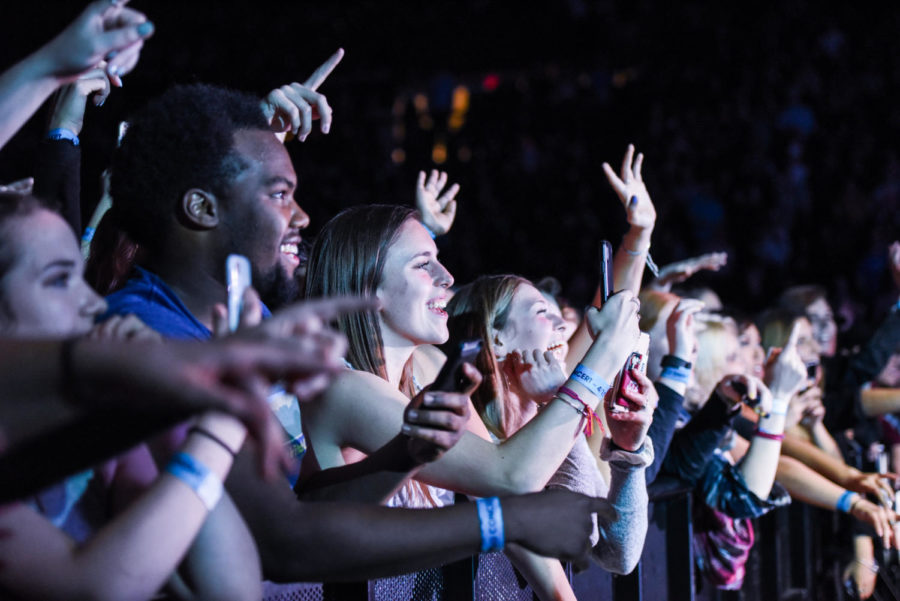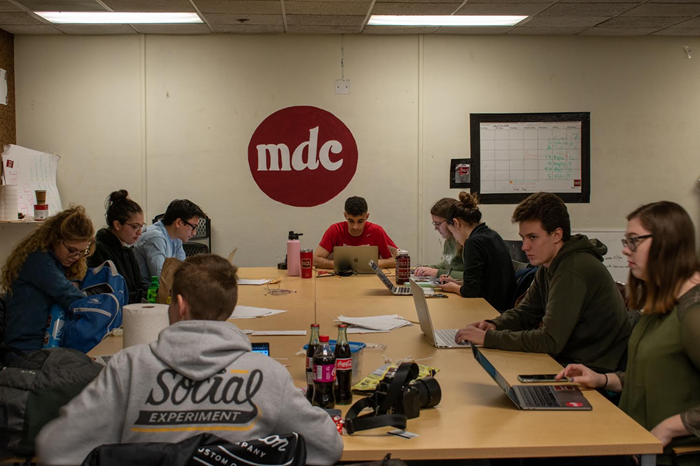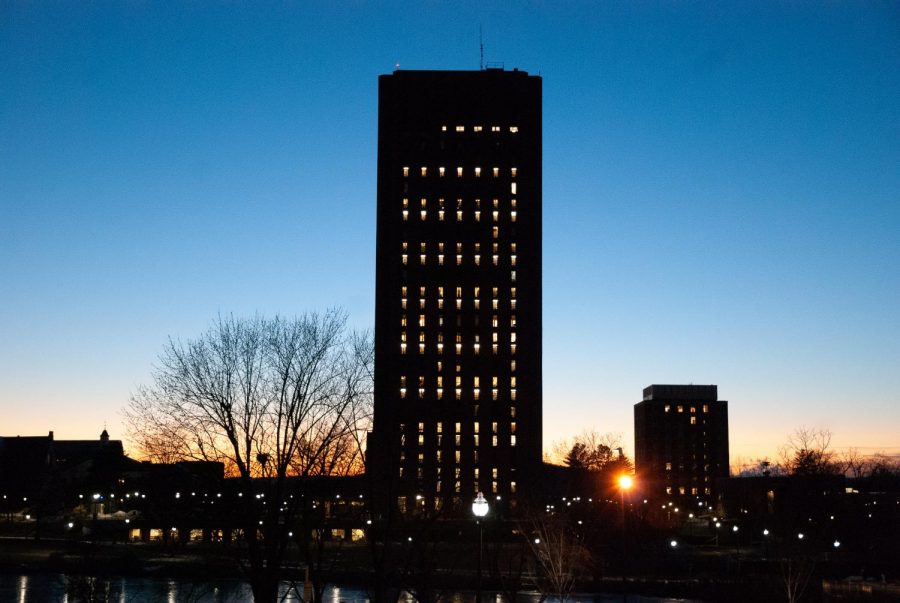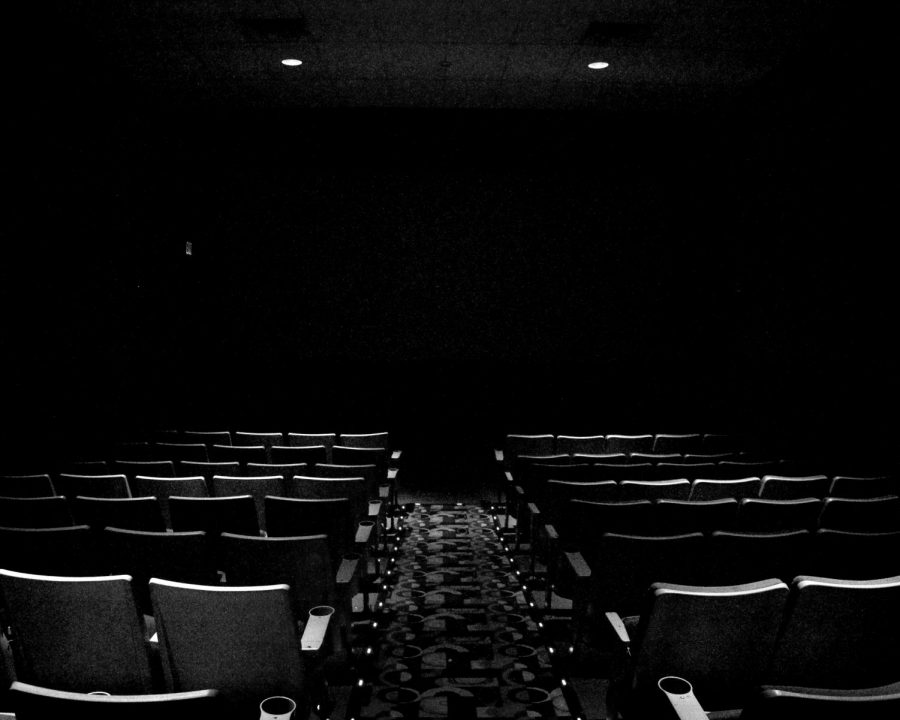Living through a pandemic has forced many things that were once in person to shift online. Physically going to work, school and extracurricular activities have now morphed into ventures toward our desks, or staying in bed if we can’t make it that far. While we’ve transitioned to a primarily virtual life, there are things that have always been virtual, like online dating.
Since apps like Tinder, Hinge and Bumble didn’t require a physical presence in the first place, there wasn’t a need for them to change. Yet, did people’s usage of these apps change in a time of isolation and loneliness? After all, one of the largest components of college is the social life, and in a time where social interaction needs to be limited for safety, are students turning to dating apps to fill that void?
There are tons of dating apps out there, yet the one that college students seemingly gravitate the most toward is Tinder. Due to the popularity of the app, one’s chances of actually meeting someone when they use it are greatly increased.
Despite the positive odds of finding a match, the app still has its downfalls. After speaking to some University of Massachusetts students, I found that many are unhappy regarding the constant in-app promotion for Tinder Premium, which goes so far as to send notifications of matches yet blur out the faces of said matches as a marketing tactic to attract investment in the paid version.
Tinder is also centered on pictures and physical attractiveness, which is a huge downfall for students searching for something more than just a hookup. There is an option to insert a bio, however most users utilize this feature to promote their social media handles rather than helping people that they match with to start a conversation.
In addition to Tinder, UMass students mentioned using Hinge and Bumble, although not as often.
Brendan Bey, a senior at UMass, explained how he liked that Hinge provides you prompts to answer when creating your profile. These fun prompts such as “two truths and a lie” or “a hill I would die on is…” help show other users who you truly are. They make it much easier to spark conversation with a match. Unlike Tinder — which students seem to use mostly for mindless swiping — Hinge only provides you with about 10 matches per day, which really makes you think about whether or not you want to like a profile.
Bumble was mentioned briefly amongst students, its major downfall being that the app only allows women to make the first move – and many are reluctant to do so.
In addition to powerful in-app features, the fact that we have been socially isolated has helped provide exposure to dating apps. It appears to be a common experience among UMass students that their usage of dating apps increased during the pandemic.
Jillian Zahar, another senior, said her dating app usage fluctuated with the seasons. During the initial quarantine in March of 2020, she used dating apps a lot since it was cold, and everyone was inside. Yet, during the summer she noticed herself using them a lot less since she could do other activities safely, like go to the lake or beach, exercise outside or meet up with her friends outdoors. As she moved back to school and the weather started getting cold again, she found herself once more gravitating toward dating apps.
Zach Tammaro, a junior at UMass, noted that he used dating apps a lot during quarantine, simply because he had a lot of time on his hands to scroll and swipe.
The uptick in usage raises the question: why are people using them? In the midst of a pandemic, meeting up with a near stranger runs the risk of getting you sick. However, even if you don’t meet up with someone off a dating app, the interactions within the app serve as something to keep your mind occupied during this time of isolation, which seems to be a big reason that students are attracted to them.
Zahar remarked that she likes that dating apps allow her to interact with people outside of her immediate social circle. Even if she never meets them in person, she says, “it’s fun talking to new people, always.”
However, this isn’t the case for everyone. Bey and Tammaro both noted that using dating apps during the pandemic made them feel lonelier because it serves as a constant reminder that things are not “normal,” and you can’t meet people like you typically would. Bey even went so far as to claim that he doesn’t think he would use dating apps if he had the option to go to bars and parties where he could meet new people spontaneously.
An increased usage of dating apps also raises the question of how people’s mental health is affected by them. Using social media in excess can make people feel as though they’re under the spotlight, and being constantly perceived by those who are viewing their profile on a dating app may have the same affect.
Students reported that if they happened to get a lot of interaction that day — whether it be matches or messages — it made them feel good about themselves since their peers found them attractive. On the other hand, if they were going through a dry spell of matches, it put them a little down in the dumps. The effect was by no means drastic, but it was there regardless and going through the continuous cycle of being lifted up and let down by matches can get exhausting.
For many people, one of the most important parts of college is the social life. In a time where social interactions need to be limited for safety, it’s natural for people to try to find it in other places. For UMass students, that seems to be dating apps. The increased usage of dating apps raises concern of whether or not it’s safe for people to be using these apps in the midst of a pandemic, yet many believe it’s a harmless way for people to feel connected to those around them.
Emma Ryan can be reached at [email protected].



















